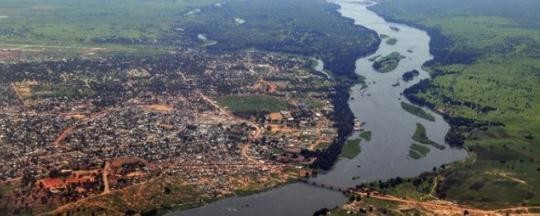The Sudd Institute, a Juba-based research group, has recommended against holding national elections in South Sudan for at least three years.
“Given time constraints and ongoing instability, we suggest that national elections are not merited for at least 3 years,” reads a report, available for download below, released last week by the think tank.
The constitutional legitimacy of the SPLM-Juba leader Salva Kiir as president ends in July 2015, so the faction has proposed holding elections before that deadline.
“The government’s plea is arguably sound, constitutionally, but remains readily outweighed by conflict circumstances,” the Sudd Institute argues. “Besides, the same constitution requires national population and housing census for legally binding elections to be conducted.”
The report’s author says that Kiir has ignored other constitutional requirements related to elections, such as the formation of the Political Affairs Council which is meant to regulate political parties.
“That the government selectively focuses on elections as stipulated in the constitution but not other items of significance certainly raises concerns,” the report says. “Is the government afraid of losing to the opposition or its constituents after the 3-year transitional arrangement? Or is the government, faced with the war it is accused of manufacturing, just desperate for legitimacy?”
The report further contends that the government is not financially capable of conducting elections by July, and that too many people are displaced to take part in the vote.
“Going by the 2008 census results, over one-third (Upper Nile region) of the population won’t be in a position to participate in these elections due to insecurity and widespread displacement. Likewise, heavy rains in June/July would make majority of the rural settings inaccessible for the national vote. The result would be general elections conducted only for and in the urban centers, making them less representative of the entire political constituency of the nation.”
The author says that any elections held in South Sudan under such conditions would not be legitimate.
“The government lacks a credible environment in which the current elections could be conducted,” the report concludes.
‘More harm than good’
Edmund Yakani, an activist with the Community Empowerment for Progress Organization, likewise warned against conducting elections this year before there is peace, saying doing so risks causing “more harm than good.”
“Some parts of the country not participating in the national elections may challenge the credibility of the election activities and process,” he told Radio Tamazuj this morning.
“The fear that CEPO have is any politician who may lose the elections and get discontented with the results may cause harm to the nation as what we experienced in the past April 2010 elections where some discontented politicians rebeled,” Yakani said.
Yakani said that credible elections require an atmosphere of peace and stability in the entire country.
The SPLM-Juba recently announced an elections budget of 1.5 billion South Sudanese Pounds, which is equivalent to more than 10% of the 2014/2015 budget. However, the budget is yet to be approved by parliament.
MP Onyoti Adigo, who is head of the opposition SPLM-DC party in parliament, told Radio Tamazuj that the SPLM faction led by Salva Kiir will face “a problem” if it tries to move forward without parliamentary approval for the elections funding.
“If they will not seek parliamentary approval then it is a violation of the constitution and it is a problem between parliament and the executive,” he said.
‘How will people vote?’
Separately, the political wing of the armed opposition SPLM-IO also spoke out against the vote.
“I don’t see any free and fair elections, we are not welcoming any elections,” said Oyet Nathaniel, Chairman of Political Affairs and a senior member of the SPLM-IO delegation to the Addis Ababa peace talks, speaking to Radio Tamazuj form Khartoum, Sudan.
Oyet said that holding elections will cause chaos and insecurity.
“Salva Kiir has lost his legitimacy. How will people vote when security of the people is not safe even with those in Juba city of which he has complete control of it and others are inside UN protection site?”
“You need to bring back peace, something that we are doing in Addis. We are negotiating an agreement between us and the government such together we can hold elections. The budget requirement is not there, then how can you call for an election?” Oyet said.




